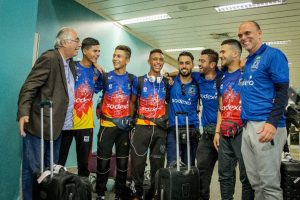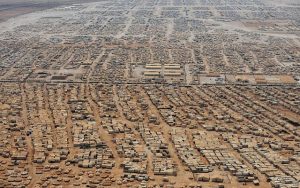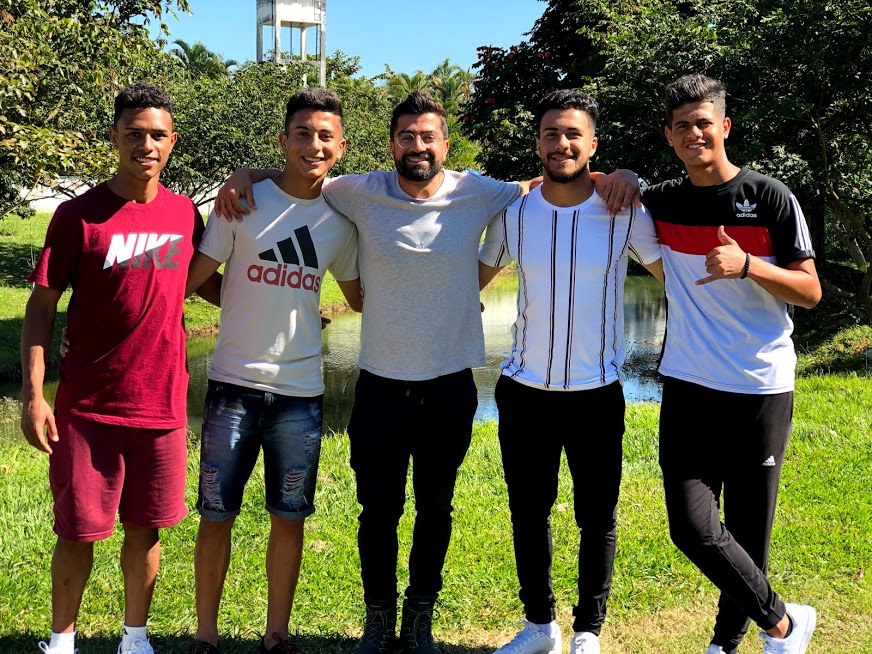São Paulo – Brazilian soccer academy Pérolas Negras seeks out support to bring more young Syrians from Zaatari refugee camp in Jordan to train soccer in Brazil as well as supporting the four players that have been in Rio de Janeiro since 2018. They intend to expand their project even more into African countries such as Uganda and Kenya. The project values the excellence in the sport, education, and social inclusion and aims to prepare boys and girls and bridge the gap between amateur and professional soccer.
The professional team now features Syrians, Venezuelans, Haitians and Brazilians in vulnerable situations. Pérolas Negras was created in 2009 in Haiti with youth from a poor background and victims of the magnitude 7.0 Mw earthquake that ravaged the country in 2010.
According to the founder of the school and Viva Rio NGO, Rubem César Fernandes, the project’s goal is that sports and soccer in particular act as means of socialization and work. “We gave this name, Pérolas Negras, because it’s a rare type of pearl. Now we have 150 active players in the metropolitan area of Port-au-Prince, Haiti. Alumni amount to over 400,” Fernandes told ANBA.

Young Syrians with Fernandes (L)
The age of the young Caribbean ranges from 8 to 17, and past this age the players wanted to get into the professional world. “So, the academy came to Rio de Janeiro in 2016 and started operating in 2017. A member of the Rio de Janeiro State Football Federation (FFERJ), we are now the C Category professional and Sub-20 current champions,” the founder said.
In 2018, the academy opened a communication channel with Syrian refugees in Jordan in partnership with Asian Football Development Project (AFDP), a project by prince Ali bin Al-Hussein of Jordan, who’s also FIFA Asian Football Confederation.
Fernandes visited Zaatari refugee camp in Jordan, which has housed over 80,000 people since the war in Syria broke out in 2012. “Some children were born there,” the project creator said. We developed a tournament and over 120 children participated; it was a blast. We ran a physical, technical selection process and checked if they were available to come to Brazil,” he said.
Four boys were selected – Qais (15), Omar (16), Hafeth and Ahmad (18), pictured above. Their families didn’t come. “The families were overwhelmed. It’s an opportunity to improve their lives, but it’s hard for them leaving, and many still hope to return to Syria,” he said.
The project was supported by AFDP and the United Nations High Commissioner for Refugees (UNHCR). “Prince Ali has opened many doors with institutional, logistics and promotion support,” the founder said. The project’s international development manager in Jordan is Hashem Sabbagh (pictured above, center), who participated in the selection process and traveled to Brazil with the boys back in 2018.

He told to ANBA that a documentary film was made on the journey of the Syrian refugee participating in the project – “Five Football Dreams” directed by Bassel Ghandour, who had been nominated to an Oscar. The fifth player mentioned in the title eventually didn’t come to Brazil.
To maintain the athletes in Rio, it’s necessary USD 20,000 a year for each kid, and the project seeks out a sponsorship to continue their work. “We have a certain urge as the year has begun already. It’s an opportunity for companies to link their name to both soccer and social inclusion, and it can add value and have a large exposure of the brand. Soccer speaks an inclusion language – when an athlete knows how to play, it doesn’t matter where he comes from, so people change their perception about both the athlete and their background. Our project uses soccer to bring education and sports closer together, seeking out talents in challenging environments both in Brazil and abroad,” Fernandes said.
The training center is in the town of Resende in the South of the state of Rio de Janeiro. “It’s a curious ensemble, Syrian, Haitian, Venezuelan and Brazilian players. Now we want to expand the project to bring more Syrian refugees as well as players from African countries such as Uganda and Kenya. We’re always seeking out support to clear the way,” Fernandes said.
The concept of the academy as a bridge between social soccer, leisure and education and professional soccer operates in ten other vulnerable communities in the state of Rio, including Vila Aliança, Maré, Cantagalo, Cidade de Deus, and Caxias. Pérola Júnior reaches 2,000 children and teenagers.
Contact:
Rubem César
rubemcesar@vivario.org.br
+55 21 98563-7623
Hashem Sabbagh
+962 79506-1666
Translated by Guilherme Miranda




